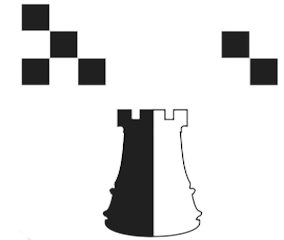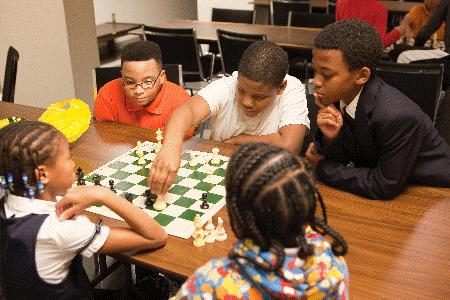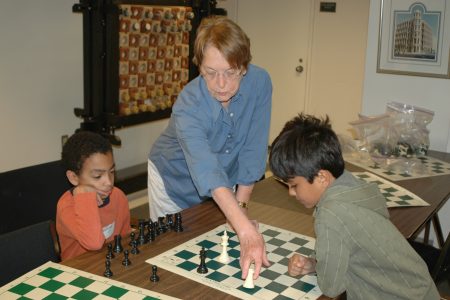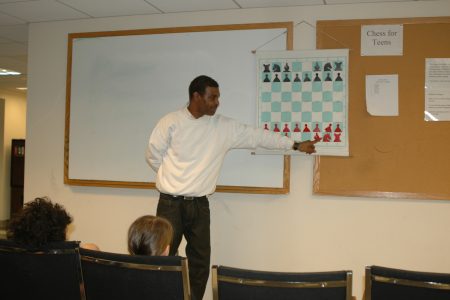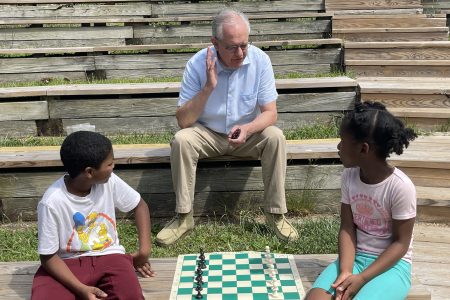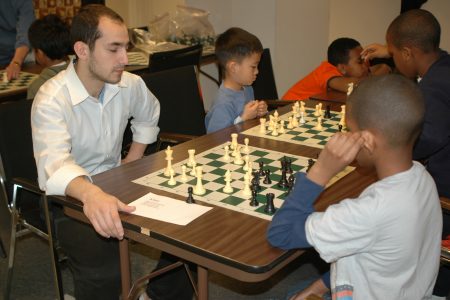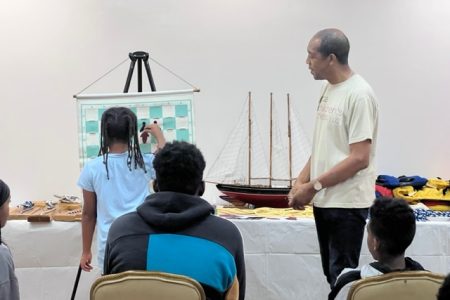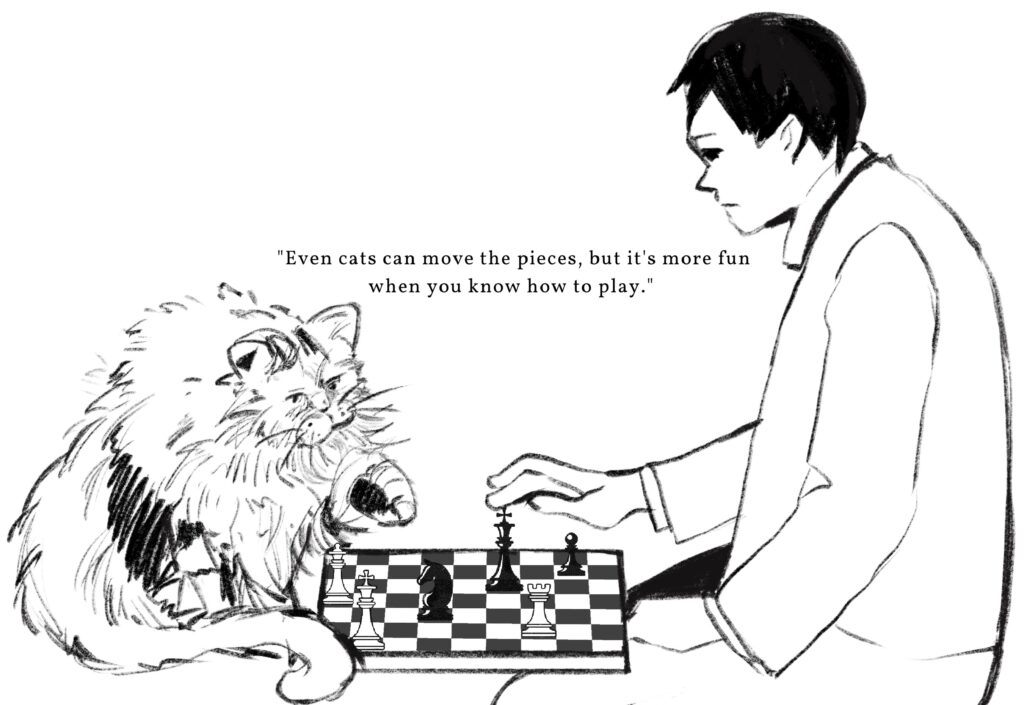We’re looking for teachers!
Would you like to teach chess? Are you interested in learning the skills to teach a roomful of children to sit and concentrate on a game of chess for an hour? Does helping kids learn critical thinking skills, teaching them to distinguish good ideas from bad ones, excite you?
At the U.S. Chess Center, we work in large suburban settings and in urban classrooms teaching children the rules, discipline, strategy, and etiquette of chess. We need more teachers for both our urban and suburban chess classes! Full time or after-school part-time positions are available.
To apply, please send your résumé with a cover letter to admin@chessctr.org.
These lesson plans (see below) are designed assuming that neither the teacher nor the students have substantial experience with chess. The lessons are updated occasionally and may be downloaded for free as PDF files.
You do not need to be a great chess player to be a chess teacher. You need to be able to follow a lesson plan and you need to find time consistently to allow the students to learn. Some of our best chess teachers did not know even the rules of the game when they began teaching chess. They had open minds and the desire to learn along with their students. They now are convinced that chess is an extremely valuable tool to use in the classroom.
And, here are some chess vocabulary and rules to review that we teach new players: https://chessctr.org/teach/chess-club-things-we-have-learned/
We have thousands of used books for sale under market prices. If you want to create a chess library, or add to yours, give it a look:
https://chessctr.org/usedbooks/
Check back on occasion, as more books are added to the list frequently.
Purchases help support the charitable mission of the Chess Center.
Jolin is an eleventh grader at Winston Churchill HS and a Chess Center student.
She is passionate about both chess and art and sometimes draws the intersection.
- Every game must begin and end with the players shaking hands.
- Between the two handshakes, no talking is permitted. “Check” need not be said. Players are responsible for noticing where all of the pieces on the board are located, and what threats are pending.
- Never do anything to distract any other player in the tournament, especially your opponent.
- Always use the “touch move” rule.
- If an illegal move is made, the tournament director should be summoned. In a tournament using a “Sudden Death” time control, the other player receives an extra two minutes when one player makes an illegal move.
- Never gloat over a victory, or become despondent or hostile following a defeat. It is always best to analyze the game with your opponent, after the game ends, and in a different room from where you played. Leave the playing room quietly when you finish so as not to distract people who are still playing.
- Never comment on a game that is in progress, whether the game is yours or one that you are just watching.
- The tournament director has the authority to punish breaches of etiquette, and may add or subtract time as a sanction. In extreme cases, players may be forfeited.
